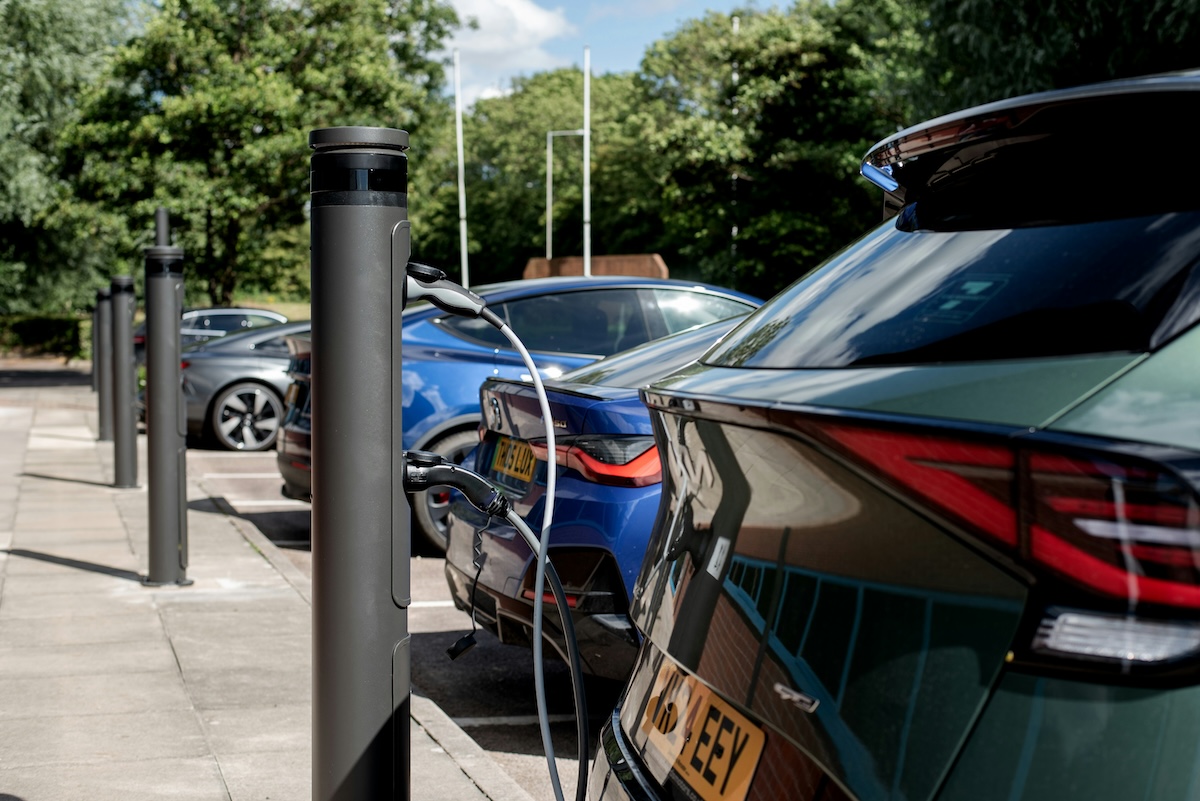If you’re considering getting a low-emission vehicle but are worried about it being expensive, leasing with the loveelectric salary sacrifice scheme can save up to 50% on your monthly car payments, but that’s not all. You also get some other incentives.
In order to encourage the adoption of electric vehicles (EV) in the UK, the government has created different grants through the Office of Zero Emission Vehicles (OZEV) that you can use to make both EV leasing and purchasing more affordable and accessible (HMRC). It’s not just the government, in fact organisations like the Energy Saving Trust have also created similar grants that can make switching to an EV more affordable to drivers in the UK, plus there’s also tax breaks on EVs!
So the real question is, even if you aren’t on a budget, why pay full price when you can get money back? Here is a list of some grants available in the UK, so why not have a look and see if there’s any additional ways you could save when going electric.
In this article, we'll cover:
- Plug-In Car Grant (PICG)
- Electric Vehicle Homecharge Scheme (EVHS)
- Energy Saving Trust Grant
- Workplace Charging Scheme (WCS)
- On-street Residential Chargepoint Scheme (ORCS)
- Additional Tax Benefits
- Government Grants for EV: FAQ
Note: If you’re looking for a low-cost way to get an electric car while still getting some tax benefits, then sign up to loveelectric for free.
Plug-In Car Grant (PICG)
The Plug-In Car Grant is a government grant issued by the Office of Zero Emission Vehicles (OZEV) and this grant can be used to deduct a portion of the purchase price of a brand new car. Provided the vehicle you are planning on purchasing is an eligible vehicle approved by the UK government, this electric car grant can get you up to £1,500 off the purchase of a brand-new vehicle.
The general eligibility rule for this grant is the recommended retail price must be below £32,000. If you’d like to see whether or not the vehicle you’d like to purchase is eligible for this grant, we recommend looking at the HMRC website (www.gov.uk/plug-in-car-van-grants) which has a list of the eligible cars. If you’d like to get this grant, you won’t need to apply for it, the car manufacturer or your dealer should include the grant in the price they provide. (HMRC)
Electric Vehicle Homecharge Scheme (EVHS)
The Electric Vehicle Homecharge Scheme (EVHS) is a grant scheme that you can use to get a 75% reduction on the installation of a home charging point, with the maximum discount set at £350 per installation. (HMRC) You can apply for two charging infrastructures at the same property, provided you have two vehicles that qualify for the scheme.
It is important to note that as of March 2022, this grant is now available for flats & rental accommodations only. There are some additional requirements you need to meet to qualify for this grant, including the following:
- You must have off-street parking
- Your EV has to be eligible
- You must either own or lease your EV
- The charger and installer must be EHVS approved
We recommend reading more about this grant on the HMRC website as it goes into more detail about the requirements.
If you’re interested in applying for this scheme, as mentioned briefly above, you’ll have to contact one of the approved EVHS installers, who will determine if you qualify. If you’re deemed to be eligible, the installer will then apply to the scheme for you and you will be charged for the cost with the grant amount deducted. If you’d like a more in-depth explanation about how the EVHS grant works, click here.

Energy Saving Trust Grant
If you live in Scotland and don’t qualify for the EHVS, don’t worry! You can still get £250 off the installation of a home charging point (or £350 if you live remotely) with the Energy Saving Trust Grant. This grant isn’t a government grant, as the Energy Saving Trust are an independent organisation that aim to protect our climate. This does mean that if you’re eligible for the EVHS grant, you can actually use both to get your home charging point at an even better price! (EST)
The way this grant works is you can apply to be reimbursed for whatever monetary amount you are eligible for, prior to the installation taking place. If you qualify, you’ll be reimbursed following the installation. We recommend having a look at the Energy Saving Trust website to get a more in-depth explanation of how it all works.
If you’d like to apply, all you need to do is fill out a form, send the quote from your installer, and have documented proof that you either own or lease your EV. Please make sure you apply before the installation takes place, as you won’t be eligible if you apply after the charging point has already been installed!
Please be aware that as mentioned above, this grant is only available for people living in Scotland. All of the other grants on this list are available across the UK, this grant is the only exception.
Workplace Charging Scheme (WCS)
If you’re an employer looking to have charging points installed at your workplace, the Workplace Charging Scheme (WCS) is a government grant you can levy that could cover up to 75% of the cost of installation. (HMRC) The WCS is a voucher-based scheme that could provide those eligible for the scheme a discount of £350 per socket, (for up to 40 sockets) on the cost of installing workplace EV charging stations, meaning you could save your business up to £14,000 on company car charging infrastructure. This scheme is available for any type of business, including public authorities and charities, but you can check if you meet the criteria for both the applicant and site eligibility on the HMRC website if you're considering applying.
There are a couple of basic requirements you need to meet in order to be eligible, including the following:
- You must use an authorised installer
- You must either own the premises or have permission from your landlord
- You must have a Companies House Reference Number
Here’s a link to the HRMC website where you can learn more as well as download an application form and get started on your application!

On-street Residential Chargepoint Scheme (ORCS)
Another grant is the On-street Residential Chargepoint Scheme (ORCS), which is an EV chargepoint grant that allocates funds for charging device installation for local authorities to provide on-street parking in residential areas. This grant is a joint venture of the Office for Zero Emission Vehicles (OZEV) and Energy Saving Trust that was created to help residential areas reduce their carbon footprints and improve air quality.
The ORCS grant won’t cover the full cost of installation, however, it could cover a maximum of £7,500 per chargepoint (there may be exceptions if the electricity cost is very high) or 60% of the total cost of installation. (HMRC)
If you’d like to see the application criteria, click here or have a look at the Energy Savings Trust website where they have more information. If you’re a resident hoping to receive this grant, contact your local authority to get started. If you’d like to get started on the application here’s a link to where you can find the ORCS application form.
Additional Tax Benefits
Not only are there grants that can make having an EV more affordable, there are also tax benefits. Below is a quick overview of some of the ways in which you can use tax benefits to make having an EV more affordable but if you want a full tax breakdown, here’s an article that covers how EV taxes work.
Exemption from Road Tax
Firstly, as of 2020, fully electric cars are exempt from Vehicle Excise Duty (VED) or as it’s more commonly known, road tax. The reason for this is this tax is based upon how much CO2 your vehicle emits and as EVs don’t emit any CO2 they’re exempt from this tax. If you’d like to read more about this, we recommend checking out the HMRC website.
Low BiK
You may have come across the term Benefit in Kind (BIK) before, basically what this is a tax on a benefit that you receive related to your employment. If you lease a car through your employer (such as when you lease using the loveelectric salary sacrifice scheme) you need to pay this tax to HMRC. BIK is determined by the levels of CO2 emissions the vehicle emits and as EVs don’t produce any CO2 emissions, the BIK rate is only 1% until the end of the next financial year in 2023, where it will increase to 2% by 2025. If you’d like a more in-depth explanation, check out this blog on EV tax benefits.
Government Grants for EV: FAQ
Is there a grant for electric cars in the UK?
Yes. Electric vehicle smart chargepoints can be installed at domestic properties across the UK with the help of the EV chargepoint grant, which provides funding of up to 75%.
How do I claim an EV grant? / How do I qualify for the Office for Low Emission Vehicles (OLEV) Grant?
- You must buy an eligible EV or plug-in hybrid car since October 2016.
- If you fail the first condition, you must have leased one for at least 6 months
- You need to have off-street parking at your home.
- You should install an OLEV-approved chargepoint. And it should be installed by an OLEV-approved chargepoint installer.
Can I claim for charging an electric car at home?
Whether you charge at home or on the road, he or she can be reimbursed per mile or per kilowatt-hour, either as a claim or as pay. It is possible to adjust mileage rates based on actual costs.




.avif)

